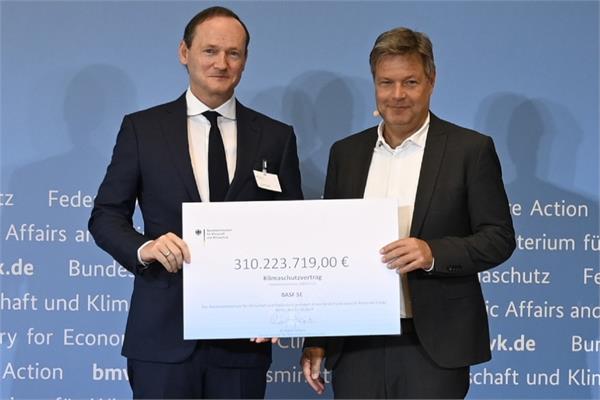
BASF has received the funding approval for the construction of the most powerful industrial heat pump for CO2-free steam generation.
The specialty chemicals manufacturer BASF has recently announced that it has received the €310 million funding approval from the German Federal Ministry for Economic Affairs and Climate Action for the construction of the largest industrial heat pump at its Ludwigshafen site, which will use waste heat from steam cracker for the production of CO2-free steam.
In the next months, the company will therefore begin the preparatory construction work for the project: the planned heat pump will have a capacity of up to 500,000 metric tons of steam per year, allowing BASF to reduce the greenhouse gas emissions by up to 98%. Moreover, a small proportion of the CO2-free steam produced will be supplied to other manufacturing plants via the steam network at the facility.
“Incorporating new technologies into our chemical production processes is one of the key components of the green transformation at BASF. And our heat pump even has a unique selling point: the planned plant will be the first of its kind to be used for steam generation – there are no comparable industrial pilot projects anywhere in the world. That is why we are thrilled that the Federal Ministry is supporting our project and thus investing in new processes that play an important role in the development of sustainable value chains in the chemical industry,” has stated Markus Kamieth, the chairman of the Board of Executive Directors of BASF SE
In addition to electricity, steam is one of the most important energy sources in the chemical industry. The Ludwigshafen site employs it primarily as process steam for drying products, heating reactors and for distillation. In the past year, BASF required about 14 million metric tons of steam. By means of heat recovery from production facilities, the company already meets half of its requirements using a low-carbon process. The other roughly 50% is currently generated by gas and steam power plants.
“We are sticking to our climate protection goals: BASF aims to achieve net-zero CO2 emissions by 2050 and also to provide customers with the best possible support on their transformation journey. Our Ludwigshafen site plays a key role in this regard. We want to turn it into a leading and sustainable chemical production site for Europe,” has added Uwe Liebelt, the president of the European Verbund Sites for BASF SE.